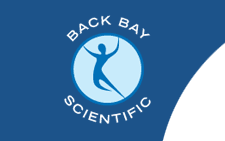 |

Serotonin
Serotonin is a neurotransmitter. As such, it is one of the chemical signals used in the brain to enable neurons (nerve cells) to communicate with each other. It is specifically involved in nerve pathways that control mood, sleep, appetite, sensitivity to pain and certain cognitive functions.
There is direct evidence that brain serotonin levels are too low in many people with depression. Moreover there is abundant indirect evidence that brain serotonin also is inadequate in people with PMS, certain types of obesity and eating disorders (for example, "carbohydrate craving"); seasonal mood changes; nicotine withdrawal; and impaired responses to stress.
Functional brain serotonin levels can be elevated by many widely-used drugs. However they can also be elevated by dietary supplements that contain the proper ratios and levels of dietary carbohydrates. The carbohydrates act through secretion of the hormone insulin; this causes more tryptophan to enter the brain. (Tryptophan is an amino acid present in all proteins. Its levels in the brain control the rate at which brain neurons make serotonin. Paradoxically, eating protein does not raise brain tryptophan levels, because the other, more abundant amino acids in proteins block tryptophan's passage across the "blood-brain barrier".)
Many other clinical scientists in addition to Drs. Judith and Richard Wurtman have shown that, in people with mood disturbances and eating disorders, carbohydrate-based products can bring symptomatic relief. These include such pioneers as Dr. Harris Lieberman of MIT and the US Army Research Laboratories, Dr. Bonnie Spring of Chicago Medical School, Dr. Norman Rosenthal of the National Institute of Mental Health, and Dr. Amnon Brzezinski of Hebrew University in Jerusalem, Israel. The relief apparently results from the resulting increase in brain serotonin. Individuals experiencing depressed, anxious or agitated mood states often also crave carbohydrates, reflecting a nutritional need as the brain/body unconsciously seeks to satisfy an increased need for serotonin. The involvement of brain serotonin in certain mood and eating disorders is also supported by studies in which serotonin-uptake-blocker drugs have alleviated the depressed mood and overeating associated with smoking withdrawal, PMS, Seasonal Affective Disorder and obesity related to carbohydrate craving.
One way to enhance brain serotonin production might be to administer tryptophan directly. This is not a practical option. Tryptophan is not sold in the United States for oral consumption because of severe medical problems that arose when people took products made from an impure batch of tryptophan in 1988 (Eosinophilia Myalgia Syndrome; EMS). After the discovery of this disorder and its relationship to tryptophan products, the government removed the product from the market. It has been unavailable in an OTC form ever since, even though the EMS resulted from the impurity, not the tryptophan.
Although the effects of some drugs on brain serotonin are more robust than those of dietary supplements based on carbohydrates, the utility of these drugs for relatively minor disorders is limited by their side effects. Back Bay Scientific believes that dealing with these disorders nutritionally is a more effective, cost efficient and safer option for the long term.
Clinical research by Back Bay Scientific scientists involving serotonin has revealed a variety of additional disorders that may lend themselves to dietary interventions. Back Bay Scientific is developing and/or acquiring products for such disorders. They include the weight gain associated with carbohydrate craving, particularly that seen in association with stress; PMS; smoking withdrawal; and "winter blues". These disorders are characterized by a habitual need to consume carbohydrate foods in the late afternoon or evening, usually in association with dysphoric mood; binge eating; depression; exposure to stress; or anxiety.
Dr. Judith Wurtman discovered that the foods people with these disorders choose and the times of day they eat them can affect mood and appetite. If "carbohydrate cravers" eat carbohydrate-rich foods available in restaurants and stores, they usually also consume large amounts of fat (which contributes to obesity), or protein (which blocks tryptophan's entry into the brain).
Moreover, conventional foods do not have enough of the proper carbohydrates in the proper amounts and combinations, and fail to contain other ingredients that enhance the effects of carbohydrates. In addition, they are often digested too slowly, and act on brain serotonin for too short a period. This leads to inadequate serotonin production and overeating as the individual continues to eat as a form of "self medication".
Back Bay Scientific thus provides specially formulated nutrient mixtures designed to optimize the metabolic processes by which ingested carbohydrates stimulate brain serotonin synthesis. The products are designed to act quickly and with high efficacy for prolonged periods while preserving palatability.



Back Bay Scientific • Kendal Square Box 425307, Cambridge, Massachusetts, 02142, USA
Tel: (866) 243-6868 • Fax: (617) 812-0218 • email: info@backbayscientific.com